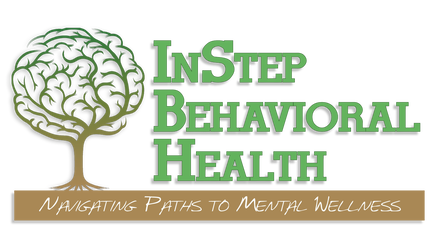Seasonal Affect Disorder
12/04/17
Tis the season for the ‘Winter Blues’ to begin settling back in. The sun begins to set sooner, the leaves begin to change and the thermostat begins to be a friend we check in on more often. The Mayo clinic defines Seasonal Affective Disorder as:
“Seasonal affective disorder (SAD) is a type of depression that's related to changes in seasons — SAD begins and ends at about the same times every year. If you're like most people with SAD, your symptoms start in the fall and continue into the winter months, sapping your energy and making you feel moody. Less often, SAD causes depression in the spring or early summer.”
Clients begin to arrive with concerns related to sleep changes, changes in appetite or feeling changes in level of fatigue. Unfortunately, in the Midwest the population faces an onset of symptoms which can mimic a depressive episode. Awareness of the symptoms combined with a toolbox of skills to combat these changes, can help alter the perception of the cold winter months.
So, what can we do? The level of impact these changes has on people can vary greatly. Some can go about their daily life with little to no impact, for some others this rapid shift can be severely debilitating. Many resources recommend light therapy. Light therapy can be as simple as adding a light bulb to a socket that you see daily. Other recommendations include monitoring your vitamin D levels, eating more foods that contain less sugar/carbs and/or engaging in healthy activities more often.
The single most important message is that you are not alone in feeling this way. As professionals we are well-versed in helping clients to get back to a level of stability and productivity. If you have several days grouped together where you feel you cannot complete activities you enjoy or experience a lack of motivation, please consult with your medical team.
Please be aware that there is a large difference between SAD and Major Depressive episodes. If you find yourself feeling symptoms and are unsure of what to do please call ISBH for an assessment with a professional. We can help you sort through the presenting symptoms and develop an appropriate course of treatment.
630-262-2640
Matthew Cermak
MSW LSW CADC MISA I
Tis the season for the ‘Winter Blues’ to begin settling back in. The sun begins to set sooner, the leaves begin to change and the thermostat begins to be a friend we check in on more often. The Mayo clinic defines Seasonal Affective Disorder as:
“Seasonal affective disorder (SAD) is a type of depression that's related to changes in seasons — SAD begins and ends at about the same times every year. If you're like most people with SAD, your symptoms start in the fall and continue into the winter months, sapping your energy and making you feel moody. Less often, SAD causes depression in the spring or early summer.”
Clients begin to arrive with concerns related to sleep changes, changes in appetite or feeling changes in level of fatigue. Unfortunately, in the Midwest the population faces an onset of symptoms which can mimic a depressive episode. Awareness of the symptoms combined with a toolbox of skills to combat these changes, can help alter the perception of the cold winter months.
So, what can we do? The level of impact these changes has on people can vary greatly. Some can go about their daily life with little to no impact, for some others this rapid shift can be severely debilitating. Many resources recommend light therapy. Light therapy can be as simple as adding a light bulb to a socket that you see daily. Other recommendations include monitoring your vitamin D levels, eating more foods that contain less sugar/carbs and/or engaging in healthy activities more often.
The single most important message is that you are not alone in feeling this way. As professionals we are well-versed in helping clients to get back to a level of stability and productivity. If you have several days grouped together where you feel you cannot complete activities you enjoy or experience a lack of motivation, please consult with your medical team.
Please be aware that there is a large difference between SAD and Major Depressive episodes. If you find yourself feeling symptoms and are unsure of what to do please call ISBH for an assessment with a professional. We can help you sort through the presenting symptoms and develop an appropriate course of treatment.
630-262-2640
Matthew Cermak
MSW LSW CADC MISA I
